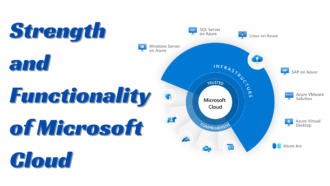Best Backup Solutions for Small Businesses
In our digital world, data is the heartbeat of a business, big or small. As such, small businesses are beginning to understand the importance of prioritizing data backup. Picture this: it’s your safeguard, your safety net against our unpredictable world, where everything from hardware failures to cyberattacks could compromise your business continuity. It’s all about ensuring the longevity and resilience of your business by reducing the risk of data loss.
But what does data backup mean for you?
Think of it as creating a twin for your data or data files, a carbon copy. This ‘twin’ is there for you to fall back on, just in case the unthinkable happens and your original data is lost or damaged. Now, not all backups are made equal. Full backups replicate all your data; incremental backups only save the changes since the last backup, and differential backups record all the changes since the previous full backup.
In this article, we will demystify some of the best backup solutions out there, tailored especially for small businesses. Let’s dive in and explore how you can best protect your business’s digital lifeblood.
The Need for Data Backup in Small Businesses
Imagine a local retailer scrambling as they lose their entire inventory data due to a system crash or the chaos that ensues when a small healthcare provider accidentally deletes vital patient records. These unfortunate scenarios bring to life the devastating consequences of data loss that small businesses can face. It’s not just about operational disruptions and financial loss. The reputational damage can be long-lasting and much harder to repair.
This is where the importance of a reliable backup solution comes into play. Small businesses need a solution that’s as secure as a vault, keeping the data well protected from any unauthorized access and insidious cyber threats. But security isn’t the only factor here. Scalability is equally important. Your business will grow, and so will your data storage needs. A good backup solution should grow with you, letting you add more data storage as and when required.
Now, picture a scenario where you need to restore your data. You wouldn’t want a solution that’s complicated and time-consuming. Instead, you’d need an easy recovery process. And while we’re making things easier, wouldn’t it be great if backups could happen regularly without you having to initiate them each time? That’s why automation is a vital feature for a good backup solution.
Of course, we must remember cost-effectiveness. Small businesses usually operate on tight budgets, and a backup solution should not break the bank. It’s all about finding the perfect balance of value and affordability.
Review of Top Backup Solutions for Small Businesses
As a small business owner, you have a lot on your plate – managing operations, overseeing sales and marketing, and constantly brainstorming ways to grow your business. Amidst all these responsibilities, navigating the complex landscape of data backup solutions can be daunting. According to the MSP’s backup solutions report, these seasoned professionals can offer a comprehensive range of solutions for backing up your data.
Let’s look at some of these solutions, like Google Workspace, Dropbox, and Microsoft OneDrive for Business leading the pack. These platforms offer the convenience of accessing your data from any location with an internet connection and real-time collaboration features, making teamwork easy no matter where your team members are. Importantly, these solutions significantly reduce the need for extensive hardware investments as your data is stored in the cloud, thus lowering your overall IT costs.
On the other hand, local backup solutions such as Acronis and Veeam offer benefits of a different kind. These solutions provide more control over your data because everything is stored within your physical location. It means that you get faster access because access to your data is not dependent on an Internet connection. Plus, some backup-as-a-service providers claim this option to be more secure because the data is physically stored locally.
But what if your business needs a blend of accessibility, control, and security? This is where hybrid backup solutions come into play. Hybrid solutions like Carbonite Safe and CrashPlan combine the best of both worlds, offering both on-premise and cloud backup options.
These solutions allow you to store some data on-site for quick access, while other data can be stored in the cloud for disaster recovery. This approach provides a few benefits, including increased security, as even if your physical data is compromised, you still have a secure copy in the cloud.
Each type of backup solution offers unique advantages, and the choice should align with your business’s specific needs, budget, and long-term objectives. Keep in mind that no matter which solution you choose, the ultimate goal is to safeguard your valuable business data against unexpected loss.
Factors to Consider when Choosing a Backup Solution
Despite the plethora of backup solutions available, as a small business owner, there are some critical considerations to consider as you finalize your choice. The task isn’t simply about picking a solution that looks good on paper but choosing a system that aligns perfectly with your unique business needs, size, and goals. Your data backup solution isn’t a one-size-fits-all decision – it’s a strategic choice that should support your business growth and continuity in the long run.
For instance, a small business in the creative industry might handle large files and require a solution that offers substantial storage capacity. In contrast, a small financial firm might require a backup solution that provides advanced security features due to the sensitive nature of the data it manages.
Budget constraints are another significant factor to consider. Small businesses must balance choosing a backup solution that delivers value and reliability while being cost-effective. It’s important to understand the total cost of ownership of the backup solution, including the upfront costs and ongoing expenses such as maintenance and upgrades.
Compliance with industry-specific regulations is a must for businesses operating in regulated industries like healthcare or finance. Ensure your backup solution can meet standards such as HIPAA for healthcare or SOX for financial services, which dictate how data should be handled, stored, and protected.
Another factor to consider is the level of technical support provided by the backup solution provider. Even with the best backup solution, technical issues can arise; a swift resolution is critical when they do. A good backup solution provider will offer robust technical support, helping you resolve problems quickly to minimize downtime.
Finally, consider the growth trajectory of your business. Opt for a solution that is scalable and can grow with your business. Backup solutions should have the flexibility to increase storage capacity and adapt to the evolving needs of your business.
Best Practices for Implementing a Backup Solution
A well-implemented backup solution is only as good as the regularity and accuracy of its use. Establishing a regular backup schedule is crucial to ensuring that your data is always up-to-date. Depending on the volume and frequency of data changes, this could mean daily, weekly, or even real-time backups. Automated backups can be a boon here, reducing the risk of human error and ensuring consistent data protection.
In addition to implementing a solid backup schedule, staff training is equally significant. This involves more than just instructing your team on how to perform backups. It encompasses educating them about the importance of data protection, the potential risks of data loss, and the role they play in maintaining data security. This training can be tailored to your specific industry and should be updated as technology and best practices evolve.
Of course, backing up your data is only half the equation. Regularly testing the restoration process is essential to ensure your backup solution works as intended when it’s needed most. It is essential to know that you should perform several test restorations to confirm that your data can be successfully recovered and that the integrity of your data is maintained. Remember, a backup that cannot be restored successfully is of no use.
Moreover, a good practice is to document your backup and recovery procedures, clearly outlining the steps to take during regular operations and in an emergency. This can help eliminate confusion and expedite the recovery process when time is of the essence.
Finally, it’s important to periodically review your backup strategy to account for changes in your business operations, technology advancements, and evolving cybersecurity threats. This will help you keep your backup solution aligned with your business needs and the broader threat landscape, ensuring the continued protection and accessibility of your business data.
Conclusion
Data backup is not a luxury but a necessity for small businesses in today’s data-driven world. By carefully considering their unique needs and evaluating the available solutions, small businesses can find a backup solution that provides peace of mind and supports their growth. It’s an investment in the business’s future, ensuring that current gold data is always safe and accessible.


















